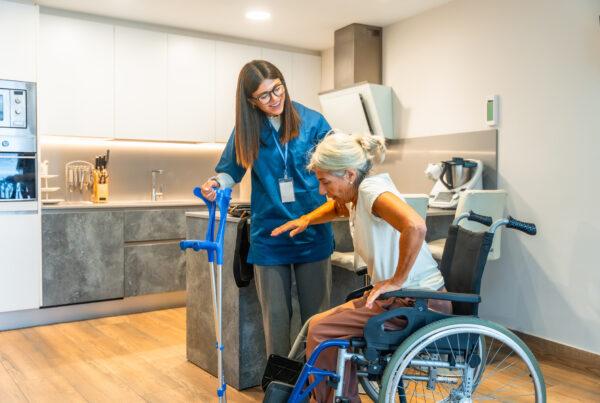 Healthcare facilities operate at a brisk pace, and therefore, so do unit clerks. But what does a unit clerk do, exactly? Unit clerks ensure smooth operations in hospitals, clinics, care homes, and other healthcare facilities.
Healthcare facilities operate at a brisk pace, and therefore, so do unit clerks. But what does a unit clerk do, exactly? Unit clerks ensure smooth operations in hospitals, clinics, care homes, and other healthcare facilities.
These professionals provide essential administrative support, allowing medical staff to focus on patient care. This blog post explores the responsibilities, skills, and career paths of being a unit clerk.
What Does a Unit Clerk Do?
Unit clerks, also known as ward clerks or unit secretaries, are crucial in managing the administrative tasks within a healthcare unit. Their responsibilities include:
- Patient Interaction and Communication: Unit clerks often serve as the first point of contact, greeting patients and visitors to create a welcoming environment, handling incoming and outgoing calls, and facilitating communication between patients, families, and healthcare staff.
- Administrative Tasks: Responsible for data entry into electronic health records (EHR) systems, scheduling patient appointments, arranging transport services, and maintaining organized records, medical charts, and paperwork.
These duties ensure the efficient operation of healthcare departments, allowing medical staff to focus more on patient care. To answer the pressing question, what does a unit clerk do?

Unit clerks are responsible for maintaining records per their medical office assistant training
Support for Healthcare Staff
- Assisting with Workflow: Unit clerks assist nurses and physicians by managing paperwork and preparing documentation required for patient care.
- Ordering Supplies: They ensure the unit has the necessary medical and office supplies.
Coordination of Patient Care
- Ensuring Smooth Operations: Unit clerks coordinate various aspects of patient care, from admission to discharge, ensuring that all necessary documentation and processes are completed efficiently.
- Liaising with Departments: They work closely with other departments, such as radiology, laboratory, and pharmacy, to coordinate patient services.
Skills Required for a Unit Clerk
The role of a unit clerk requires a unique blend of skills to handle the diverse responsibilities of the position effectively:
- Organizational Skills: Unit clerks must be highly organized to manage multiple tasks simultaneously.
- Communication Skills: Communication is crucial for unit clerks as they interact with patients, families, and healthcare staff.
- Attention to Detail: Accuracy is vital in healthcare settings.
- Technical Skills: Proficiency in using electronic health record systems, essential office software, and other administrative tools.
- Interpersonal Skills: Unit clerks must have strong interpersonal skills to build positive relationships with patients, families, and colleagues and foster a collaborative and supportive environment.

Unit clerks must have strong interpersonal skills after their medical office assistant training
Career Path and Opportunities
A career as a unit clerk can serve as a stepping stone to various opportunities within the healthcare industry.
With additional education and experience, unit clerks can move into roles such as administrative coordinators or healthcare managers, overseeing operations within a healthcare facility. Some unit clerks choose to further their education in nursing or other clinical areas.
To become a unit clerk, you must complete a medical office assistant program at a career college and receive on-the-job training. Some positions may require additional certifications in medical terminology or healthcare administration. Unit clerks work in various healthcare settings, including hospitals, clinics, long-term care facilities, and private practices.
Work Towards a Unit Clerk Career At AOLCC!
Ready to jumpstart your career as a unit clerk? The Medical Office Assistant Training Diploma at AOLCC is your gateway to the healthcare sector, providing education and real-world skills. Graduates walk away with the prestigious Certified Medical Assisting Professional (CMAP) designation and diploma.
The curriculum is robust and dynamic:
- Master Medical Administration: Dive deep into medical terminology, pharmacology, and essential administrative practices.
- Enhance Your Tech Skills: Gain proficiency in crucial office software, keyboarding, and bookkeeping.
- Real-World Experience: Complete a 160-hour Clinical Preceptorship at an approved facility, which will ensure you’re battle-ready for the medical field upon graduation.
Enrol now and reach that moment when your hard work creates success!
Visit the Academy of Learning Career College to get started now.
Your Career Awaits!




